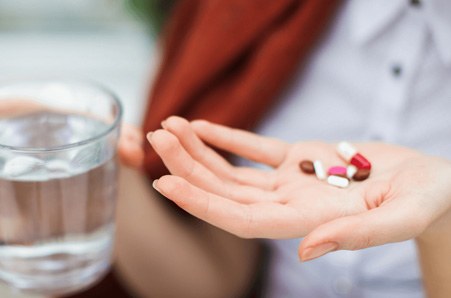Taking medications correctly is crucial for their effectiveness and your safety. Whether it’s a prescription drug or an over-the-counter remedy, following the right guidelines ensures that you get the most benefit while minimizing potential risks.
1. Follow the Prescription
Always follow the instructions provided by your healthcare provider or the prescription label. This includes taking the correct dosage, at the right time, and for the full duration prescribed, even if you start feeling better before finishing the medication.
2. Understand the Medication
Make sure you understand what the medication is for, how it works, and any potential side effects. Ask your pharmacist or doctor if you have any questions about the medication you’re taking.
3. Take with or Without Food
Some medications should be taken with food to avoid stomach irritation, while others work best on an empty stomach. Check the label or ask your pharmacist about the best way to take your medication.
4. Use a Pill Organizer
A pill organizer can help you keep track of your medications, especially if you take multiple pills daily. Organizers come with compartments for each day of the week, making it easier to remember if you’ve taken your dose.
5. Set Reminders
Use alarms or smartphone apps to remind you when it’s time to take your medication. This is particularly helpful for medications that need to be taken multiple times a day.
6. Avoid Mixing Medications
Be careful not to mix medications without consulting your doctor or pharmacist. Some drugs can interact negatively with others, leading to reduced effectiveness or harmful side effects.
7. Store Medications Properly
Store medications as instructed, typically in a cool, dry place away from direct sunlight. Some medications may require refrigeration, so be sure to follow storage guidelines to maintain their effectiveness.
8. Don’t Skip Doses
If you miss a dose, take it as soon as you remember. However, if it’s close to the time for your next dose, skip the missed one and continue with your regular schedule. Never double up on doses to make up for a missed one.
9. Dispose of Medications Safely
Dispose of expired or unused medications properly to avoid accidental ingestion or environmental harm. Many pharmacies offer take-back programs for safe disposal.
10. Communicate with Your Healthcare Provider
Regularly check in with your healthcare provider, especially if you experience any side effects or if you’re unsure about your medication regimen. They can make adjustments to your prescription if needed.
Taking medications correctly is key to managing your health effectively. By following these guidelines, you can ensure that your treatment is both safe and effective.

